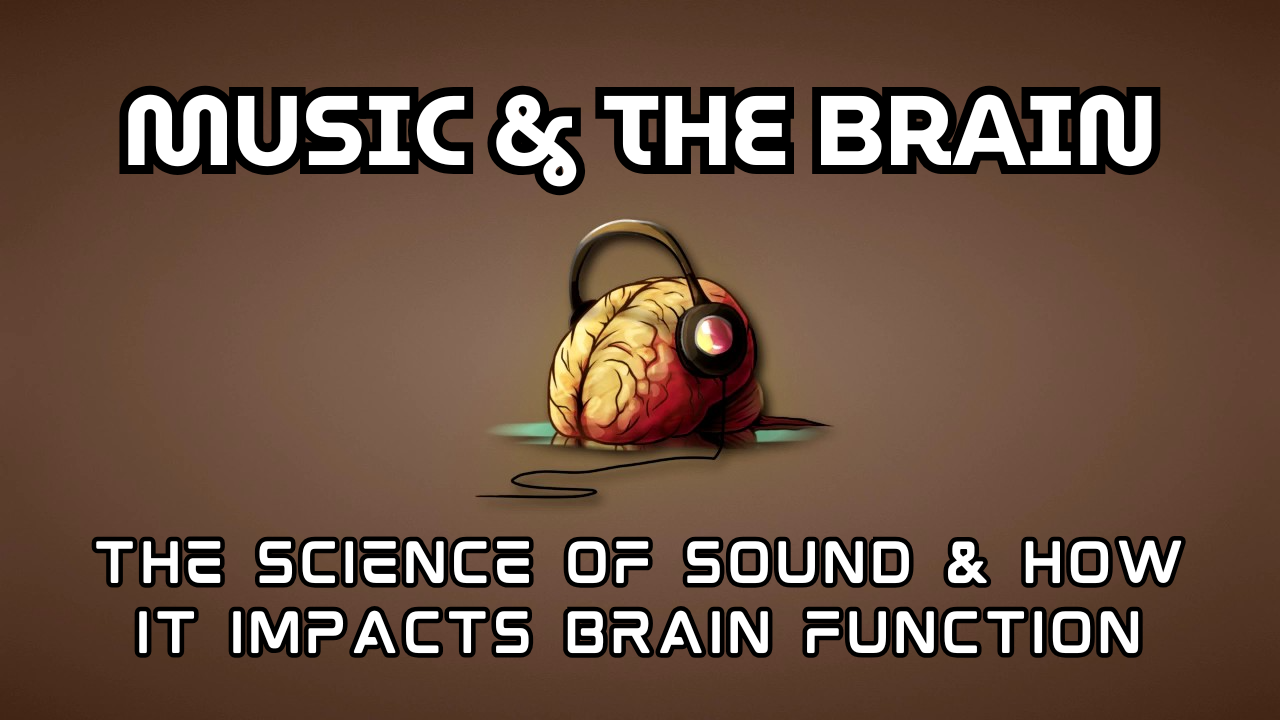Music has been an integral part of human culture for thousands of years. Beyond its ability to entertain, music holds profound power over the human brain, influencing emotions, memory, and even cognitive performance. The interplay between music and the brain is a fascinating subject that blends neuroscience with art, uncovering how sound shapes our mental and emotional landscapes. This article dives deep into the science of sound and its remarkable effects on brain function.
The Neuroscience of Music:
Music affects the brain in ways that few other incentives can. When you listen to your favorite song, multiple areas of your brain light up, including those responsible for emotions, memory, and motor skills. Here’s how music interacts with the brain:
- Auditory Cortex: This is where sound is processed. The auditory cortex decodes elements like pitch, rhythm, and melody.
- Hippocampus: The hippocampus connects music to memories, which is why you can remember a certain song and the moment it happened.
- Prefrontal Cortex: This part of the brain is responsible for decision-making and social behavior, which is why you know when to expect a beat drop in music.
- Amygdala: This part of the brain processes emotions, which is why music can make you happy, sad, or even nostalgic.
- Motor Cortex: Rhythms of the song can activate the motor cortex which induces people to tap their feet and dance to the music’s rhythm.
The Cognitive Functions Associated With Music:
Music, from research, is a good tool for brain enhancement in addition to its use in art. The key benefits include:
- Better Memory: Learning an instrument or hearing music can increase the neuronal connections that will be effective in retaining memory.
- Increased Concentration: Instrumental background music improves the focus of a person doing activities that require long hours of continuous attention.
- Language Abilities: Sound processing is improved with training in music. The basis of learning a new language and understanding speech depends on better sound processing.
- Problem Solving Skills: The player will have coordination, time, and quick thinking that translates well to problem-solving abilities.
- Improved Mood: Music therapy has also been used for reducing the effects of stress, anxiety, and depression; a good mental health support agent.
Emotional Power of Music:
Everyone agrees that music has the emotional power to do all these things:
- Evoke strong emotions: A song can be joyful, sad, angry, or soothing.
- Create social bonds: Group activities like singing in a choir promote a sense of community and belonging.
- Trigger nostalgia: Familiar melodies evoke specific memories and can elicit a powerful emotional response.
- Provide comfort: In times of stress or grief, music can heal and comfort.
Music and Brain Plasticity:
Music plays a significant role in brain plasticity, as the brain can adjust and change. According to research:
1. Musical Training:
Increases gray matter volume, which enhances neural efficiency.
2. Adaptation to Sound:
Long-term exposure to music enhances auditory discrimination. So, musicians are better at distinguishing sounds.
3. Cognitive reserve:
Engagement with music promotes cognitive reserve, delaying age-related cognitive decline.
Music Therapy: Healing by Sound:
Music therapy is a healing process that utilizes sound to address a range of mental and physical health challenges. Applications include:
- Alzheimer’s Disease: Familiar music can stimulate memory recall in Alzheimer’s patients.
- Chronic Pain Management: Listening to soothing music can reduce the perception of pain.
- Anxiety Reduction: Calming music helps lower cortisol levels, thus reducing stress.
- Stroke Recovery: Music therapy can facilitate the rehabilitation of motor and speech in stroke patients through activation of various brain areas at the same time.
Science of Genres:
The same genres of music can impact the brain differently:
- Classical: “Mozart Effect,” where it enhances spatial-temporal reasoning.
- Pop and Rock: Upbeat beats will enhance mood and increase energy levels.
- Jazz: Its improvisational nature helps develop creativity and problem-solving abilities.
- Electronic Dance Music (EDM): The repetition of beats can even hypnotize you, making you relaxed or focused.
- Nature Sounds and Ambient Music: These genres are perfect for meditation and stress relief.
How to Leverage the Power of Music:
You don’t have to be a musician to harness the power of music. Here’s how you can use it to your advantage:
- Make Playlists: Prepare playlists for specific tasks, energetic for workouts, relaxing for unwinding, and instrumental for concentration.
- Learn an Instrument: Even minimal musical education can greatly improve cognitive function.
- Go to Live Performances: The social nature of live music enhances its emotional and psychological impact.
- Integrate Music into your Daily Routine: Play music while driving, working, or relaxing to improve your mood and performance.
Conclusion:
Music is not merely an art form, it’s a profound scientific phenomenon with solid effects on the brain. From enhancing cognitive abilities to providing emotional comfort, music has the power to transform our mental and emotional states. By understanding the science of sound and incorporating music into your life, you can unlock a wealth of benefits for both mind and body. Whether you’re a listener or a creator, the connection between music and the brain offers endless opportunities for growth, healing, and joy.
FAQs:
1. How does music affect brain chemistry?
Music releases dopamine, a feel-good neurotransmitter, and reduces cortisol levels, decreasing stress.
2. Can music improve sleep quality?
Yes, listening to calming music before bed can help relax the mind and improve sleep patterns.
3. Is there a link between music and intelligence?
While music doesn’t directly increase IQ, it enhances cognitive skills like memory and spatial reasoning.
4. How does playing an instrument impact the brain?
Playing an instrument strengthens neural pathways, improves motor skills, and boosts memory.
5. Can music therapy help mental health issues?
Yes, music therapy is effective in treating conditions like anxiety, depression, and PTSD.
6. Why do certain songs evoke strong emotions?
Music activates the amygdala, the brain’s emotional center, creating powerful emotional responses.
